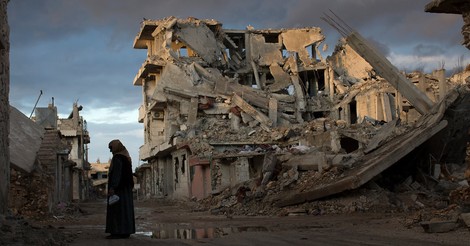Your podcast discovery platform
Curious minds select the most fascinating podcasts from around the world. Discover hand-piqd audio recommendations on your favorite topics.

piqer for: Globalization and politics Global finds
I am an Australian freelance journalist focussing on conflicts, politics, and warzones around the world. I have been working as a journalist for over 5 years, having reported from Australia, Germany, China, Egypt, Palestine, and Ukraine. I am especially interested in the way that new technologies are being used in conflict zones in unexpected and often disturbing ways. During my time working as a journalist, I also co-founded open-source war reporting site Conflict News.
This Is What Victory Over ISIS Looks Like
After more than three years of fighting, the conventional war against the so-called 'Islamic State' is all but won. The self-declared Caliphate has lost its largest population centers, its major military assets, and most of its financing, leaving it as a little more than a shell of the formidable power it once was.
But the price for this victory has been very heavy for the region. Tens of thousands have died, and millions forced to flee their homes. While states in the West debate how best to entice refugees to return home, they would do well to look at another cost of this war: the sheer level of physical destruction that the fighting has left in its wake.
Large swaths of Iraq and Syria have been completely leveled by the war against IS. Entire suburbs, which housed tens, if not thousands of people, have been hollowed out, with barely a single undamaged structure to be seen. Critical infrastructure, such as water, power and internet connections are severely damaged, making these places yet more unlivable.
Megan Specia's article for the New York Times takes the reader on a tour of the major cities destroyed by this war: Raqqa, Mosul, Ramadi, Fallujah, and Kobane. Using video pans and drone footage, it conveys just how utterly destroyed and unliveable many of these places have become. As well, it starkly highlights the costs of the kind of aerial bombardment employed by the Coalition, and how it has produced devastation paralleling that of Stalingrad or Warsaw in WWII.
Such reporting raises a very important issue. If these cities (and indeed the region at large) is not reconstructed rapidly and their local economies restored, it only sows the seeds for the further radicalization of the population.
